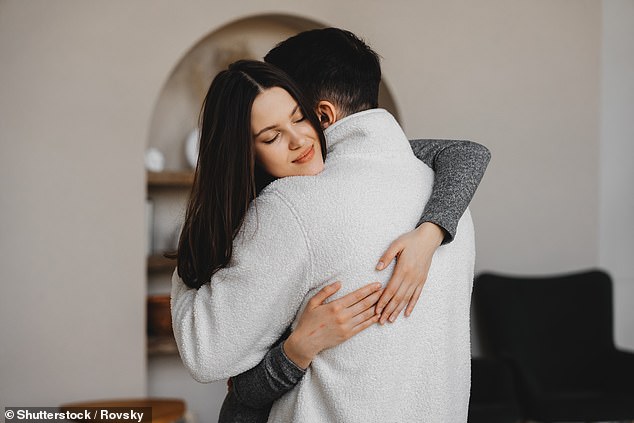What Your Hugs Say About You, Science Reveals

The Science Behind Hugs: What Your Embrace Reveals About You
Hugging is a universal gesture that transcends language and culture. Whether it's an affectionate cuddle or an awkward squeeze, everyone has their own unique style of hugging. But did you know that the way you embrace could actually reveal aspects of your personality? A recent study has uncovered fascinating insights into how hugging patterns can reflect traits such as neuroticism and conscientiousness.
Researchers used advanced AI video analysis technology to examine hugs between friends and romantic partners. Participants were asked to repeatedly walk towards each other and embrace, while also completing questionnaires about their personality traits. The results showed that romantic partners tended to hug for significantly longer than platonic friends. On average, couples hugged for 7.02 seconds, while friends only embraced for 2.88 seconds.
However, the tightness of the hug was more closely linked to personality characteristics. People with high neuroticism, which involves difficulty managing negative emotions, preferred a larger distance during hugging, resulting in less tight embraces. In contrast, individuals who scored high on conscientiousness—marked by responsibility and carefulness—preferred shorter distances and tighter hugs.
Interestingly, the study found no significant differences in the distances between different body parts, such as knees or feet, between lovers and friends. While one might expect couples to hug closer, some couples maintained a larger distance, and some friends hugged quite tightly. This suggests that hugging tightness does not necessarily differentiate between friends and romantic partners.
Professor Sebastian Ocklenburg, from MSH Medical School in Hamburg, highlighted that the next time you want to gauge someone’s feelings for you, paying attention to the duration of their hug could be telling. If the hug lasts less than three seconds, it may indicate you are in the "friend zone." However, if the hug lasts seven seconds or more, it could suggest deeper feelings.
The Perfect Hug: Duration and Style Matter
Previous research has explored what makes a hug perfect. Studies have shown that longer hugs, lasting between five and 10 seconds, are generally more pleasant than very short ones that last just one second. However, the position of the arms during a hug didn’t seem to influence the overall experience.
Experts advise being mindful of extremely brief hugs, although they haven't determined exactly when a hug becomes too long or awkward. The study was conducted by researchers at the Department of Psychology, Goldsmiths, University of London, who emphasized that hugging is one of the most common forms of affective touch in daily life.
The research also revealed that criss-cross hugs were the most common type of embrace, while the height difference between individuals had little impact on hugging style.
The Emotional Benefits of Hugs
Hugging isn’t just a social gesture—it can have real emotional benefits. A 2018 study found that hugging can help calm nerves after an argument. Holding hands also improves mood following a conflict, with effects lasting into the next day.
In a study involving 400 participants, those who received a hug from someone they had argued with were less likely to hold onto negative feelings in the hours and days afterward. This supports previous findings that affectionate human touch has a calming effect on the nervous system.
Beyond the Hug: The Power of Touch
The science behind touch extends beyond hugs. Could your handshake reveal secrets about your intimate life? Some studies suggest there is a surprising connection between grip strength and relationships.
Could the secret to a stronger immune system be as simple as a hug? Research shows that the “cuddle hormone” oxytocin can boost immunity and promote optimism. Hugging a pet can also release this hormone, offering a powerful sense of well-being.
Additionally, experts suggest that “cuddle hormones” may play a role in managing anxiety. Meanwhile, rising loneliness has led to increased demand for hugs, as seen in places like Aleksandra’s cuddle sanctuary, where clients queue for comfort.
Hugging is more than a gesture—it's a complex interplay of psychology, emotion, and biology. Understanding the science behind it can deepen our appreciation for this simple yet profound act of connection.

Comments
Post a Comment